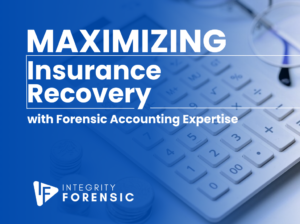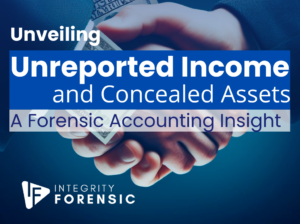In the ever-evolving world of forensic accounting, one technology has emerged as a game-changer – blockchain. With its inherent transparency, immutability, and decentralized nature, blockchain is revolutionizing the field of forensic accounting. In this enlightening article, we will explore the transformative impact of blockchain technology on forensic accounting practices and its potential to enhance fraud detection and prevention.
What is Blockchain?
Blockchain is a decentralized digital ledger that records transactions across multiple computers. It provides transparency, security, and immutability by creating a chain of blocks that store data. Each block contains a timestamp and a reference to the previous block, creating a chronological and tamper-resistant record of transactions. Blockchain technology has the potential to revolutionize various industries, including finance, supply chain management, and healthcare, by enabling trust, efficiency, and traceability.
The Impact on Forensic Accounting
Blockchain technology, often associated with cryptocurrencies like Bitcoin, holds immense promise for forensic accountants. Its decentralized ledger system ensures that all transactions are securely recorded and cannot be altered retroactively. This immutability creates an unbreakable chain of custody for financial data, enhancing trust and transparency in the auditing process.
Traditionally, forensic auditors faced challenges when obtaining and verifying financial data from multiple parties. However, blockchain simplifies this process by enabling real-time access to a shared ledger. With automated data validation and instant verification, forensic accountants can streamline their auditing procedures, reducing the time and effort required to gather evidence.
Blockchain’s distributed nature and transparency act as a powerful deterrent against fraudulent activities. Every transaction recorded on the blockchain leaves a digital footprint that can be traced and audited. This traceability significantly strengthens fraud detection capabilities, making it harder for criminals to manipulate financial records without leaving a digital trail.
Smart contracts, self-executing agreements stored on the blockchain, hold great potential for preventing fraud. These contracts automatically enforce predefined rules and conditions, eliminating the need for intermediaries and reducing the risk of fraudulent activities. Forensic accountants can leverage smart contracts to establish secure and tamper-proof financial transactions, mitigating the risk of fraud within organizations.
As blockchain technology continues to evolve, so too will its impact on forensic accounting. Advancements such as privacy-focused blockchains and improved scalability will further enhance the capabilities of forensic auditors. However, it’s important to note that while blockchain technology is a powerful tool, it is not a one-size-fits-all solution. Forensic accountants must remain vigilant, adapt to new technologies, and continue honing their skills to effectively leverage blockchain’s potential.
In summary, blockchain technology has ushered in a new era for forensic accounting, revolutionizing the way financial data is accessed, verified, and audited. Its inherent transparency, immutability, and decentralized nature offer unprecedented opportunities for fraud detection and prevention. As the technology evolves, forensic accountants must embrace blockchain’s potential and adapt their practices to harness its transformative power.
At Integrity Forensic, we stay at the forefront of technological advancements, combining our expertise in forensic accounting with the latest blockchain solutions to empower organizations in the fight against fraud. Contact us at 855-673-9999 or send us a message at questions@integrityforensic.com today to discover how we can help you unlock the benefits of blockchain technology for your forensic accounting needs.





